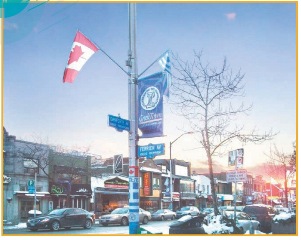Executive Summary
 Sometime in the mid-1990s, when Pierre Trudeau made a rare visit to the Parliament in Ottawa, the speaker of the House of Commons arranged for a private luncheon attended by a dozen selectively invited Liberal members. Each guest was given the opportunity to pose one question to the former prime minister. Chris Cobb, writing in the Ottawa Citizen nearly a decade later, recalled the exchange between Trudeau and invited guests as some of those present recollected it. After several relatively routine questions, former Liberal MP John Bryden remembered asking Trudeau about the multiculturalism policy his government introduced in the early 1970s. In Cobb’s retelling, Bryden asked,
Sometime in the mid-1990s, when Pierre Trudeau made a rare visit to the Parliament in Ottawa, the speaker of the House of Commons arranged for a private luncheon attended by a dozen selectively invited Liberal members. Each guest was given the opportunity to pose one question to the former prime minister. Chris Cobb, writing in the Ottawa Citizen nearly a decade later, recalled the exchange between Trudeau and invited guests as some of those present recollected it. After several relatively routine questions, former Liberal MP John Bryden remembered asking Trudeau about the multiculturalism policy his government introduced in the early 1970s. In Cobb’s retelling, Bryden asked,
“Mr. Trudeau, you were one of the key architects of multiculturalism and now we are in a situation where many newcomers to Canada consider their ethnicity before being Canadian. Is this the outcome you wanted?”
There was silence around the table as the former prime minister thought before replying: “No, this is not what I wanted.”
According to Mr. Bryden, Mr. Trudeau made no attempt to hide his disappointment that Canada and the federal presence had all but disappeared in Quebec.
“It was fascinating to hear,” said Mr. Bryden. “It was clear that he was deeply disappointed that under the Mulroney government and driven by a fear of separatism, the whole multiculturalism policy had been twisted to celebrate a newcomer’s country of origin and not a celebration of the newcomer becoming part of the Canadian fabric” (italics added).1
I am not quite certain if it is proper to infer from the measured response of the prime minister who initiated multiculturalism as a policy for Canada that he had come very close to renouncing the same. Trudeau died a year before the terrorist attacks in New York City and Washington on September 11, 2001, that opened a new period in world politics?the “clash of civilizations”—of which Samuel Huntington, a distinguished professor of political science at Harvard, had warned (Huntington 1996). Doubts about multiculturalism, as Trudeau expressed, and warnings about a new and troubling period in world politics following the end of the Cold War and the disintegration of Soviet Union in 1991, compels us to reconsider the appropriateness of multiculturalism as a set of ideas and policies within a liberal democratic country such as Canada some forty years on.
The world at the end of the first decade of the twenty-first century is much different from the world at the end of the 1960s, as the promises of the earlier times have been severely shaken. The same is true about politics in Canada: the cheerful optimism of the centenary year has been jolted by the politics of separatism in Quebec, by the demographic changes through immigration in the main urban centres, by the forces of globalization and free trade agreements, and by the insidious nature of security threats from international terrorism—in particular, radical Islam or Islamism—to an open, liberal, democratic society. To those forces have been added the economic uncertainties of a global recession that came quite unannounced in the late summer of 2008.
View entire study as PDF (33 Pages)
——-
Salim Mansur is an Associate Professor in the faculty of social sciences, University of Western Ontario, London, and teaches in the department of political science. He is the author of Islam’s Predicament: Perspectives of a Dissident Muslim and co-editor of The Indira-Rajiv Years: the Indian Economy and Polity 1966-1991 and has published widely in academic journals such as Jerusalem Quarterly, The Journal of South Asian and Middle Eastern Studies, American Journal of Islamic Social Sciences, Arab Studies Quarterly, and Middle East Quarterly.
 Sometime in the mid-1990s, when Pierre Trudeau made a rare visit to the Parliament in Ottawa, the speaker of the House of Commons arranged for a private luncheon attended by a dozen selectively invited Liberal members. Each guest was given the opportunity to pose one question to the former prime minister. Chris Cobb, writing in the Ottawa Citizen nearly a decade later, recalled the exchange between Trudeau and invited guests as some of those present recollected it. After several relatively routine questions, former Liberal MP John Bryden remembered asking Trudeau about the multiculturalism policy his government introduced in the early 1970s. In Cobb’s retelling, Bryden asked,
Sometime in the mid-1990s, when Pierre Trudeau made a rare visit to the Parliament in Ottawa, the speaker of the House of Commons arranged for a private luncheon attended by a dozen selectively invited Liberal members. Each guest was given the opportunity to pose one question to the former prime minister. Chris Cobb, writing in the Ottawa Citizen nearly a decade later, recalled the exchange between Trudeau and invited guests as some of those present recollected it. After several relatively routine questions, former Liberal MP John Bryden remembered asking Trudeau about the multiculturalism policy his government introduced in the early 1970s. In Cobb’s retelling, Bryden asked,

